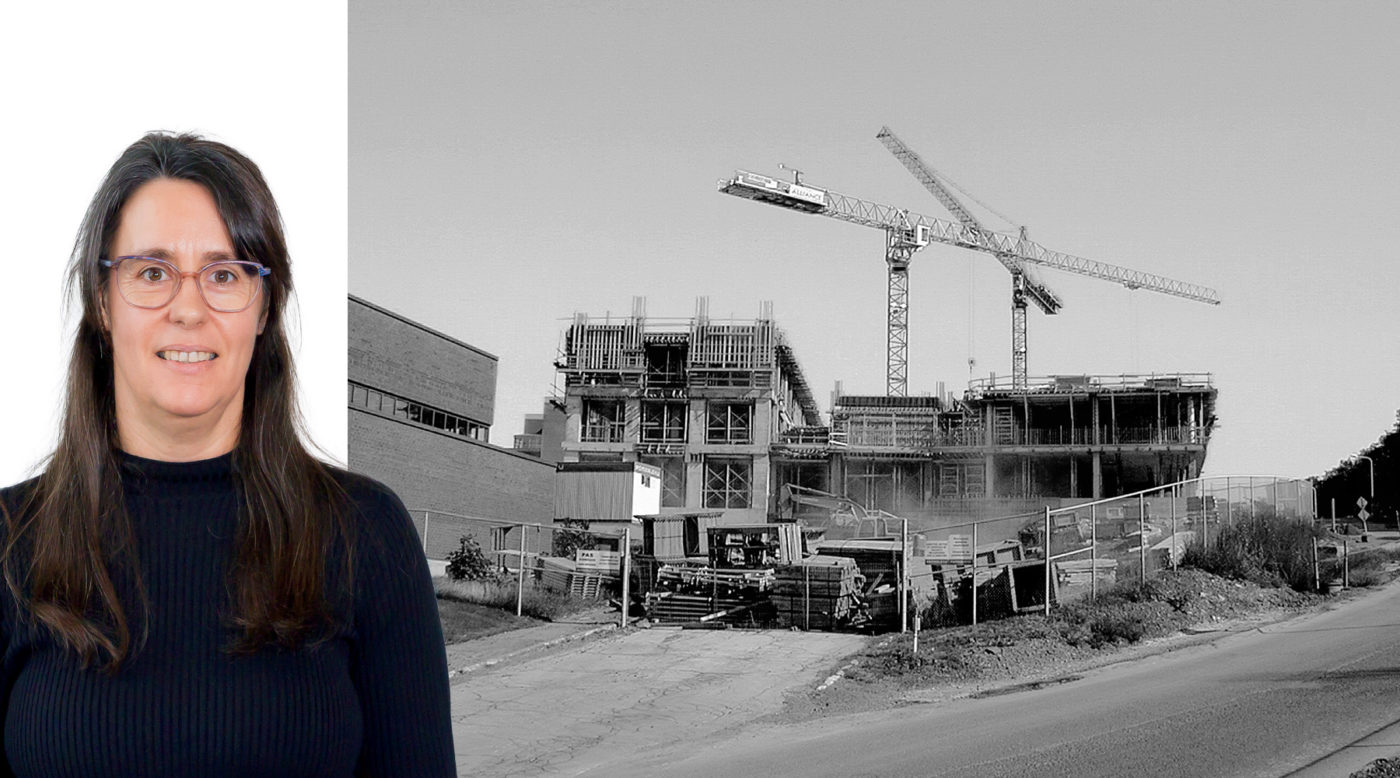News
The Pillars of IRIC: meet Caroline Baril
Published on May 30, 2023
In 2023, IRIC celebrates its 20th anniversary. Among the initiatives put in place to celebrate this anniversary, the series of portraits entitled “The Pillars of IRIC” will highlight the people who have contributed since the very beginning, sometimes in the shadows, to make IRIC what it has become.
Today, meet Caroline Baril, Research Officer in Marc Therrien’s Laboratory at IRIC.
Following a bachelor’s degree in biochemistry at the Université du Québec à Montréal (UQAM) and a master’s degree in molecular biology at the Université de Montréal, Caroline Baril decided to pursue her doctoral studies in biochemistry at McGill University in the laboratory of Marc Therrien, IRIC’s current scientific director, who was then at the Institut de recherches cliniques de Montréal (IRCM). In 2003, he contributed to the creation of IRIC, moving his team there to lead Research unit on intracellular signalling. Caroline joined IRIC in spite of herself, but she says she has never regretted having jumped into this great adventure!
Caroline specializes in fruit fly (drosophila) genetics, bio-imaging and cell biology. She can also easily dissect the brain and hematopoietic system of a drosophila larva!
Caroline also plays a key role in the lab by assisting students in the design of experiments, writing grant applications, abstracts, theses and preparing presentations. Together with a Ph.D. student, Caroline is currently trying to elucidate the role of certain proteins related to cancer development in cell migration in drosophila.
She cheerfully accepted to answer some of our questions:
Do you have a memorable anecdote related to IRIC?
One summer, the fire alarm was activated and the whole Institute was evacuated. Often, these alarms are false alarms… But this time, it was a real fire caused by… our laboratory! A polyacrylamide gel transfer device had caught fire in our cold room after a heating plate was turned on instead of a stirring plate! After this incident, all plates were replaced by stirring plates only.
What motivates you to stay at IRIC after all these years?
I think what keeps me here is that I don’t feel like I’m “working” per se! I get up in the morning and go have fun. I have incredible intellectual freedom, great colleagues, and access to an array of efficient technologic platforms that make my life easier. A special mention to the bio-imaging platform and more specifically to its manager Christian Charbonneau. He is a “pro” for everything that has to do with image processing. In fact, I asked him to make me look 20 years younger in the photo associated with this text! He obviously refused [laughs].
Tell us about an accomplishment that makes you proud of your work at IRIC
On several occasions, I have had the opportunity to promote the benefits of drosophila to advance cancer research. People from all backgrounds have passed through our fly room: groups of students in training, volunteers at events organized by IRIC or potential donors during institutional visits. It is always a pleasure to see the astonishment of people when they learn that this little fly that sometimes invades their kitchen is an extraordinary tool for understanding cell biology. I am proud to have contributed to promote basic research with model organisms like drosophila and to have demonstrated their crucial role in the advancement of biological knowledge.
Can you tell us about a key figure, a role model, a mentor for you at IRIC?
Marc Therrien has of course been an important figure in my scientific career. From my first meeting with him in 2000, I saw the stars in his eyes when he discussed his research projects. He is certainly the most motivated person I know! I think I’ve seen him discouraged for about 15 minutes in 22 years! Marc is as excited to talk about developmental biology in drosophila as he is about a new chemical compound that inhibits one of his favorite proteins. He told me that he asked ChatGPT to write him a poem about GTPases: that gives you an idea of his love for science!
From yesterday to today, what has changed the most at the Institute?
I have noticed that more importance is given to the well-being and training of the next generation of students in general. Several activities such as workshops on transferable skills, networking with former students, “Tech-Talks” to democratize certain laboratory techniques, and a monthly follow-up of the students’ writing have, among other things, been put in place to facilitate the life of the student community.
